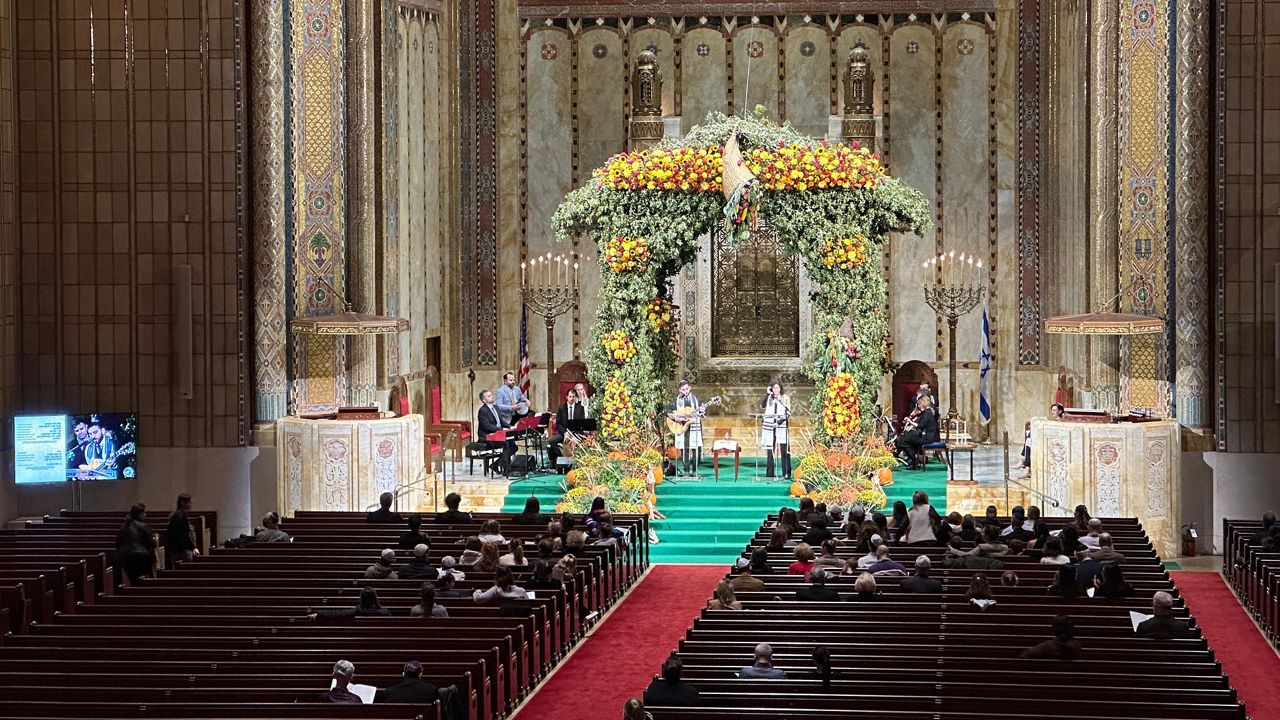Jewish New Yorkers celebrate the release of the remaining hostages from Gaza.
What You Need To Know
- The synagogue held a special outdoor Torah procession, known as Hakafah, to mark the release of the hostages
- Monday’s procession coincides with the Jewish holiday Simchat Torah — a joyous milestone during which the Torah reading cycle concludes and starts again
- It’s been just over two years since Hamas militants killed some 1,200 people and abducted about 250 others in southern Israel
- Key aspects of the ceasefire agreement still need to be worked out, including whether Hamas will disarm, who will govern Gaza and the possibility of Palestinian statehood
“It’s amazing. It’s a tremendous relief. It’s a day of great joy. It’s also a day of great sadness in a lot of ways, but we’re just thrilled that we made it to this moment,” Cathy Kagan, a congregant at Temple Emanu-El on Manhattan’s Upper East Side, said.
The synagogue held a special outdoor Torah procession known as Hakafah to mark the occasion.
Twenty living hostages were released, while four deceased hostages were returned to Israel.
“For us, this is a dream come true. It’s been something we’ve been hoping for and praying for — for two years. It was two years ago on Simchat Torah that Hamas invaded and committed atrocities that were unfathomable, and now, two years later on the same holiday, we’re able to welcome the living hostages home,” senior Rabbi Joshua Davidson said.
Monday’s procession coincides with the Jewish holiday Simchat Torah — a joyous milestone during which the Torah reading cycle concludes and starts again.
New Yorkers say they have many reasons to celebrate this year.
“We’re so excited to celebrate, not just Simchat Torah tonight, but also the release of these hostages and all these families that have been waiting to come together. This is the most joyous time of year, and I think this is the most joyous time that I have ever been alive as a Jew,” Mike Witman, the director of Lifelong Learning at Temple Emanu-El, said.
It’s been just over two years since Hamas militants killed some 1,200 people and abducted about 250 others in southern Israel. Since then, Israel has killed an estimated 67,000 Palestinians and reduced much of Gaza to rubble.
For many Jews, the end of this chapter brings a sense of closure, but the pain remains.
“There are complicated days ahead, but this is a moment that we have to seize in celebration. We’ve been yearning for it, we’ve been praying for it, we have an obligation to celebrate it,” Rabbi Davidson said.
Meanwhile, key aspects of the ceasefire agreement still need to be worked out, including whether Hamas will disarm, who will govern Gaza and the possibility of Palestinian statehood.
